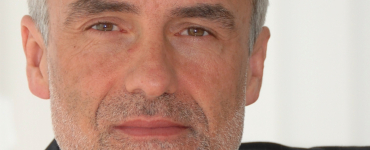Discussion on IANA and the Administration of the Internet Determine the Agenda in Singapore
Singapur, 08-12.02.2015 – Who will take on the supervision of the Internet Assigned Numbers Authority (IANA) from September 2015? This question is currently dominating all international discussions on Internet Governance and was also a central topic at the 52nd ICANN Meeting, which took place from 8-12 February in Singapore. Representing eco – the Association of the German Internet Industry were eco Chairman of the Board Prof. Michael Rotert and Director of Policy and Law Oliver Süme, along with Thomas Rickert and Lars Steffen from eco Business Development. eco used the platform of the meeting above all to consult on national guidelines and recommendations for action for the transition of the IANA Stewardship. The objective is to bring a collective German position into the international negotiation process.
Current status of the IANA Stewardship Transition

The US Government announced in March last year their desire to relinquish their sole control over the core functions of the Internet, performed by the Internet Corporation for Assigned Names and Numbers (ICANN), as long as certain framework conditions are observed. In the announcement from the US Government, the focus was on the supervision of what is known as the IANA functions, which ICANN performs on the basis of a contract with the US Government. This essentially deals with technical-administrative functions like the management of IP addresses and the so-called Root Zone, along with the allocation of generic Top-Level Domains like .com or .berlin.

The ICANN representatives warned at the 52nd ICANN Meeting against delaying and protracting the transition. If in doubt, the opportunity for the internationalization of the IANA Stewardship could vanish again into thin air in the context of the forthcoming US Presidential election. The current contract between the US telecom regulator, the National Telecommunication and Information Administration (NTIA) and ICANN comes to an end on 30 September. The original schedule for the transition from the NTIA has been adapted, but still envisages settlement by September.
4 proposals are up for consideration

The topic of IANA took so much space in Singapore that some of the other sessions were cancelled or postponed in order to give more time to the discussion of the Stewardship Transition and ICANN Accountability. Both the ccNSO and the GNSO Registry Stakeholder Group, as direct customers of IANA, tended towards an internal solution in order to preserve their influence and to avoid the additional costs associated with an external stewardship. The ICANN Board also prefers and internal solution. Mathieu Weill therefore appealed to the ICANN Board not to hinder the work of the Co-Chairs of the CCWG and to give them clear input as to what the Board will do with the results, rather than to impose new rules and the further strain the already narrow time-frame.

Currently, two internal and two external approaches to solutions are being discussed: Both proposals for external solutions envisage either an external contractual partner (“Contract Co.”) or an external trust (“External Trust Model”) as supervisory committee over ICANN, which, in both cases, would take over the role of contractual partner from the US Government.
The two proposals for internal solutions build on the existing structure of ICANN. They envisage either control through bylaws (“ICANN Internal Bylaw Model”) which provide for sufficient “ICANN Accountability”, or the creation of a trust within ICANN (“ICANN Internal Trust Model”). In the ICANN Community, the internal approach is seen as simpler to implement. However, these proposals are largely based on assumptions that need to undergo a legal assessment
Universal Acceptance is still a challenge for new gTLDs

Alongside discussions and debates on the IANA transition, particularly important for eco were the discussions on “Universal Acceptance”. Here, discussions dealt with the technical challenges which have come into existence since the introduction of new Domain endings, for example, in connection with browser resolution and the recognizability of email addresses using the new Domain endings. The change-over to the new technical format is in many cases not yet completed. “UTF-8” format has central importance as a global character encoding in the Internet, and supports strings up to a length of four bytes. Several software and browser vendors, however, still use out-of-date tables of Domain endings, so that newer Top-Level Domains partly cannot be displayed.
eco as new host of the “German Evening”


This year for the first time, eco was active as host of the “German Evening” at the ICANN Meeting. Together with Denic eG, eco organized the by-now tradition of the “German Evening” on 8 February, as a pre-event for the German-speaking participants of the ICANN conference. The Association of the German Internet Industry thereby takes over the role of the former host dotBerlin, the originator of the event. The great success of the evening illustrates yet again the importance for the German participants of the networking and exchange before the official start of the meeting.
The 53rd ICANN Meeting will run from 21 to 25 June in Buenos Aires. By then, the legal assessment will need to show which of the proposed models will also be implementable under Californian law.



